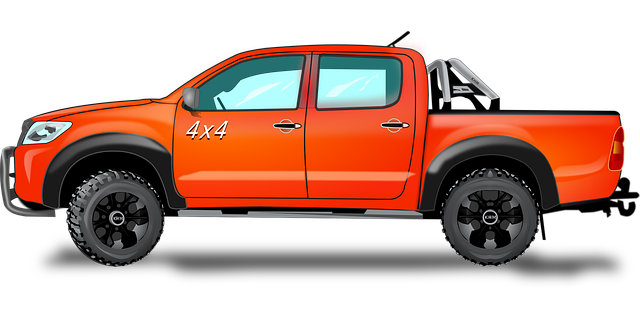Brownsville 4×4 enthusiasts need receiver hitches for secure towing. Different hitch types cater to various vehicle and trailer needs, with class I to III offerings. Installation requires alignment and regular maintenance for optimal performance and longevity. Safe towing practices include pre-drive checks, staying within capacity limits, and inspecting hitches regularly. Following these guidelines ensures a safer off-road experience for Brownsville 4×4 adventures.
Brownville 4×4 receiver hitches offer robust towing solutions for your vehicle. This article explores what receiver hitches are and why they’re essential for enhancing your towing capabilities. We delve into the various types available, highlighting their unique features. Installation tips, safety considerations, and choosing the right hitch for your vehicle are covered to ensure optimal performance and peace of mind while towing.
- What are Receiver Hitches?
- Types of Receiver Hitches: A Comprehensive Overview
- Advantages of Using Brownsville 4×4 Receiver Hitches
- Installation and Maintenance Tips for Optimal Performance
- Choosing the Right Receiver Hitch for Your Vehicle in Brownsville
- Safety Considerations and Best Practices for Towing with Receiver Hitches
What are Receiver Hitches?

Receiver hitches are a crucial component for anyone venturing off-road in their Brownsville 4×4. These hitches allow for the secure attachment of tow bars, trailers, or accessories to your vehicle’s receiver, enhancing its versatility and functionality. They serve as a reliable connection point, enabling you to transport additional equipment or enhance your off-roading experience by towing a camping trailer or a utility wagon.
Brownsville 4×4 enthusiasts often find themselves exploring rugged terrain, and receiver hitches provide the necessary stability and security for these adventurous excursions. With various types available, from standard models to custom designs, you can choose the perfect hitch that aligns with your vehicle’s make and model, ensuring a seamless fit and unparalled performance during your next off-road adventure.
Types of Receiver Hitches: A Comprehensive Overview

Receiver hitches come in various types, each designed for specific towing needs and vehicle setups. In the Brownsville 4×4 community, understanding these options is crucial for optimal performance and safety.
One common type is the class I hitch, suitable for light-duty towing tasks like hauling small trailers or ATVs. It offers a solid connection and is easy to install, making it a popular choice for everyday use. For heavier duties, class II hitches are recommended, capable of handling larger trailers and offering additional features like swiveling capabilities for easier maneuvering. Class III hitches, often seen in commercial applications, provide the most robust towing solution, ideal for heavy-duty rigs and specialized vehicles. These hitches require professional installation due to their complex design and high load capacities. When choosing a receiver hitch, factors such as vehicle weight capacity, ball mount size, and electrical wiring integration should be carefully considered to ensure a secure and efficient towing experience.
Advantages of Using Brownsville 4×4 Receiver Hitches

Using Brownsville 4×4 receiver hitches offers a range of advantages for those needing robust and reliable towing solutions. These hitches are engineered to withstand the rigours of heavy-duty towing, making them ideal for both personal and commercial use. One significant benefit is their ability to provide exceptional strength and stability, ensuring your vehicle and trailer remain securely connected even under extreme conditions.
Brownsville 4×4 receiver hitches also offer versatility in terms of compatibility. They are designed to fit a wide range of vehicles, allowing users to enhance their towing capabilities without compromising on vehicle performance or aesthetics. Moreover, these hitches often come with advanced features such as corrosion-resistant materials and easy installation processes, contributing to their longevity and hassle-free use.
Installation and Maintenance Tips for Optimal Performance

When installing a receiver hitch in Brownsville for your 4×4, proper alignment and levelness are crucial. Ensure the hitch is securely fastened to your vehicle’s frame using the provided hardware and that the mounting surface is clean and free from debris. Regular maintenance, such as inspecting bolts and lubricating pins, will ensure smooth operation and longevity of the hitch. Check for any signs of wear or damage before each trip, especially when towing heavy loads, to prevent unexpected failures.
For optimal performance, keep your hitch well-maintained and clean. Avoid exposing it to harsh weather conditions that could lead to corrosion. Consider using a cover or storing your 4×4 in a garage when not in use to protect the hitch from elements. Remember that a well-maintained receiver hitch will enhance your off-road capabilities, making it easier to transport equipment and accessories for all your Brownsville 4×4 adventures.
Choosing the Right Receiver Hitch for Your Vehicle in Brownsville

Choosing the right receiver hitch for your vehicle in Brownsville is a crucial step when planning to add a 4×4 capability. Consider factors like your vehicle’s make and model, towing capacity needs, and intended use—off-road adventures or heavy hauling. Receiver hitches come in various types, from standard to custom designs, each offering unique advantages.
In Brownsville, you’ll find a range of options available at local automotive stores or online retailers. Look for hitches that are rated for your vehicle’s weight capacity and feature sturdy construction for safety. Whether you’re an experienced off-roader or a casual enthusiast, selecting the appropriate receiver hitch will ensure a seamless integration with your 4×4, enhancing your driving experience in the vibrant landscape of Brownsville.
Safety Considerations and Best Practices for Towing with Receiver Hitches

When towing with a receiver hitch in Brownsville 4×4 scenarios, safety should be your top priority. Always ensure that your vehicle and trailer are properly secured to prevent unexpected detours or accidents. Check and double-check all connections, including the ball mount, latches, and safety chains, before hitting the road. Make sure you’re towing within your vehicle’s capacity limits and that your trailer is equipped with working lights and brakes.
Practice defensive driving techniques, maintaining a safe distance from other vehicles and being aware of road conditions. Keep an eye on weather forecasts as adverse conditions can affect both your vehicle’s performance and the stability of your trailer. Regularly inspect your receiver hitch for wear or damage, addressing any issues promptly to avoid emergencies while towing. Remember, adhering to these best practices not only ensures a safer journey but also helps protect your investment in both your vehicle and your 4×4 adventures.



